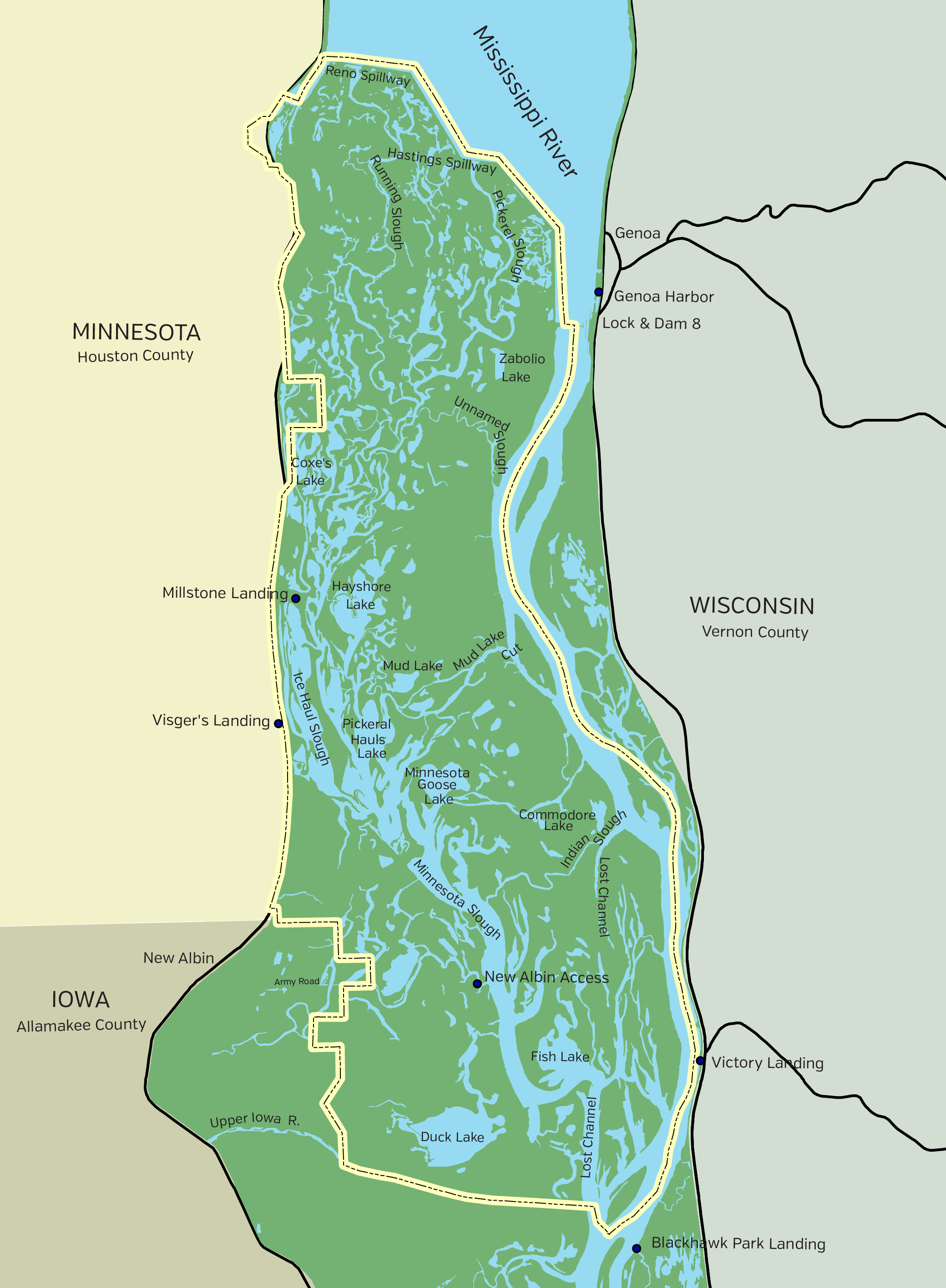
The objective of this project is to protect, restore or create resilient and diverse bottomland forests. The quality and extent of the unique forest and aquatic habitat in the Reno Bottoms project area has been declining over the past several decades. Human-caused changes in hydrology, land use, and climate have increased water levels within the project area. Without action, the project area will continue to degrade. The quality of forest and aquatic habitat will decrease. Invasive grasses will expand into forests, limiting opportunities for smaller trees to grow and reducing habitat value. Additional loss of wetland habitat will adversely affect migrating waterbirds and songbirds, who require the floodplain forest to stop and rest.
Location
The approximately 7,000-acre Reno Bottoms area is located within the Upper Mississippi River National Wildlife and Fish Refuge (refuge) in Houston County, Minnesota, and Allamakee County, Iowa, and is in Pool 9 between river miles 671 and 682. The area is bounded to the west by the Canadian Pacific railroad, to the east by the main Mississippi River navigation channel, to the north by the Lock and Dam 8 dike, and to the south by the Upper Iowa River. The closest communities to the project area are New Albin, Iowa, and Reno, Minnesota.
Description
The recommended plan includes restoring over 700 acres of forest, creating two backwater overwintering areas, constructing a partial closure, and performing forest management actions such as soil placement to raise forest elevations.
Status
The feasibility report was completed in fiscal year 2023. A plans and specifications contract for earthwork design was awarded in fiscal year 2024, with a construction contract award anticipated in fiscal year 2025, subject to appropriations.
Authority
Congress originally authorized the Upper Mississippi River Restoration Program in Section 1103 of the Water Resources Development Act (WRDA) of 1986, Public Law 99-662 (codified as amended at 33 U.S. Code 652). Section 8345 of WRDA 2022, Public Law 117-263, increased the authorized program funding to a combined $90 million annually.
The U.S. Army Corps of Engineers will plan and design the project as part of a cooperative effort with the U.S. Fish and Wildlife Service; the Minnesota, Iowa, and Wisconsin Departments of Natural Resources; and local interests.
Funding
Project design and construction will be 100% federally funded because the project is located on lands managed as a national wildlife refuge. Operations and maintenance costs will be the responsibility of the U.S. Fish and Wildlife Service.
Federal funds allocated to date $3,462,000
Estimated construction cost $39,000,000